Georgia Driver's Manual - permit test
1/99
There's no tags or description
Looks like no tags are added yet.
Name | Mastery | Learn | Test | Matching | Spaced |
|---|
No study sessions yet.
100 Terms
A conviction for unlawful passing of a school bus will result in a total of ______ points on your Georgia driving record.
6
striking a fixed object is like falling from a ___ story building.
9
Parallel Parking
Park midway between 2 standards so that the car is not more than 18 inches from the curb. the standard parallel parking dimensions utilized in the driver's license test are 22 feet in length by 10 feet in depth
Quick Stop
Drive at a speed of 20 miles per hour and make a quick, safe stop when the examiner instructs you to do so.
Backing
Back your car for a distance of approximately 50 feet at a slow rate of speed as straight and as smoothly as possible. You must turn your head and look behind the vechicle at all times while backing.
Stop for Signs or Traffic Signals
Give the proper hand or brake signal; approach in the proper lane; stop before reaching a pedestrians have cleared the crosswalk on the side of the roadway upon which you are traveling; move through the intersection only when you may do so safely.
Turn Around
Turn your car in a narrow space using 2- 3- or 4- point turn.
Approaching Corners
You must be in the proper lane and look in both directions.
Yielding Right-of-Way
Always yield right-of-way to pedestrians, vehicle operator, and bicyclists who move into the intersection before you by stopping and remaining stopprf until they have cleared the intersection.
Turning
Move into the proper lane and signal an adequate distance before the turn.
Passing
Always check in front of and behind your vehicle to make sure you can safely pass without interfering with other traffic.
Following
Do not follow other cars too closely. Watch the car ahead of you; when it passes some reference point, such as telephone pole, count "one-thousand- one one-thousand- two" if you pass the same spot before you finish counting you are following too closely
3 basic traffic laws
1- obey traffic control devices (lights and signs)
2- obey the traffic directions of law enforcement officer or firefighter, even if it goes against what the traffic control devices tell you to do
3- never drive on a roadway that has been closed for construction, for the purpose of special event, or any other official reason.
Right-of-Way
yield. then first car there goes first. or car on left must yield to car on right.
Move- Over Law
Drivers are required to move over one lane when possible if an emergency vehicle with flashing lights is parked on the shoulder of the highway. If traffic is to heavy to move over safely, the law requires drivers to slow donw below the posted speed limite and to be prepared to STOP.
Pass on a Two-Lane Road
Wait for a passing zone to begin. You must have sufficient time and space to execute your passing maneuver and return your vehicle completely to the right lane before the passing zone ends.
Okay to pass
Dotted lines
Not okay to pass
Solid lines, 100 feet of a railroad crossing, 100 feet of a bridge, viaduct or tunnel
How to pass on a two lane road
Check rear view and side mirrors and turn your head and look back to check your "blind spot" be certain no one is passing you. activate your left turn signal as you begin passing .
Water on the road can cause a vehicle to hydroplane. Your car may hydroplane at speeds as low as
35 miles per hour
What is the proper way to enter an expressway from the entrance ramp
Use the acceleration lane to blend into the traffic.
If, while driving, a tire suddenly blows out, you should
Grip the steering wheel firmly, slow down, and exit from the traffic lanes.
The maximum speed limit on a rural Interstate Highway is
70 miles per hour.
You are driving behind a motorcycle and want to pass. You must:
Have your vehicle entirely into the left lane before and during the pass.
If you are involved in an accident, one of the immediate requirements is to
Render aid to the injured.
The Georgia Implied Consent Law means that
You agree to be tested for the amount of alcohol in your blood, if you are arrested for drunk or impaired driving.
Streets and highways are most slippery:
Just after it starts to rain.
The proper way in which to make a right turn is
Signal and get into the lane nearest the right curb.
You may pass on the right of another vehicle when:
When travelling on a multi-lane highway carrying two or more lanes of traffic in the same direction.
The other vehicle is making or about to make a left turn, when a lane is provided to pass on the right.
When driving behind another vehicle at night, you should:
Keep your headlights on low beam.
If you have to stop on the shoulder of a freeway because of an emergency, you should:
Raise the hood to indicate trouble, and wait in your car for help.
You have allowed the wheels of your vehicle to run off the edge of the pavement. You should:
Hold the steering wheel firmly; release the gas pedal; and gently apply the brakes. Return to the pavement when the vehicle has slowed enough to allow roll steer back onto the highway safely.
It is more dangerous to drive at night than in daytime, because:
You cannot see as far ahead at night.
Passing on two-lane highway is prohibited when?
100 feet of railroad or bridge
shoulder of road
school bus is stopped
When can you pass on the right?
Another car is about to make a left turn or when on a multi-lane highway.
Stop!
Hand down .
Right Turn!
Hand up.
Left Turn!
Hand out straight.
How to make a right turn.
Use appropriate signals. Approach the intersection in the right lane, staying as close as practicable to the curb or edge of the roadway.
How to make a left turn.
Use appropriate signals. Mave into the far left lane of the direction in which you are traveling or into the turning lane if one is provided. Yield the right- of- way to all vehicles.
When to not make a U-Turn!
Do not make a "u" turn on a curve or near the top of a hill if you cannot be seen by other drivers approaching from either direction.
Backing Up.
Check all sides of your vehicle to make sure it is safe. Turn your head and look over your right shoulder.
Speed Limit on urban or residential district.
30 miles
Speed Limit on an unpaved county road.
35 miles
Speed Limit on a rural interstate.
70 miles
Speed Limit on an unban interstate or on a multi-lane divided highway.
65 miles
Speed limit on all non interstate or multi-lane highways.
55 miles.
Slow drivers should stay where?
on the right lane except when passing or making a left turn.
Reduce your speed.
In school or work zone or during inclement weather
Tips to Driving.
Reduce your speed
Adjust your lane position away from workers
Prepare for the unexpected
Watch for speed limit signs
...Yield: Slow down and stop before going.
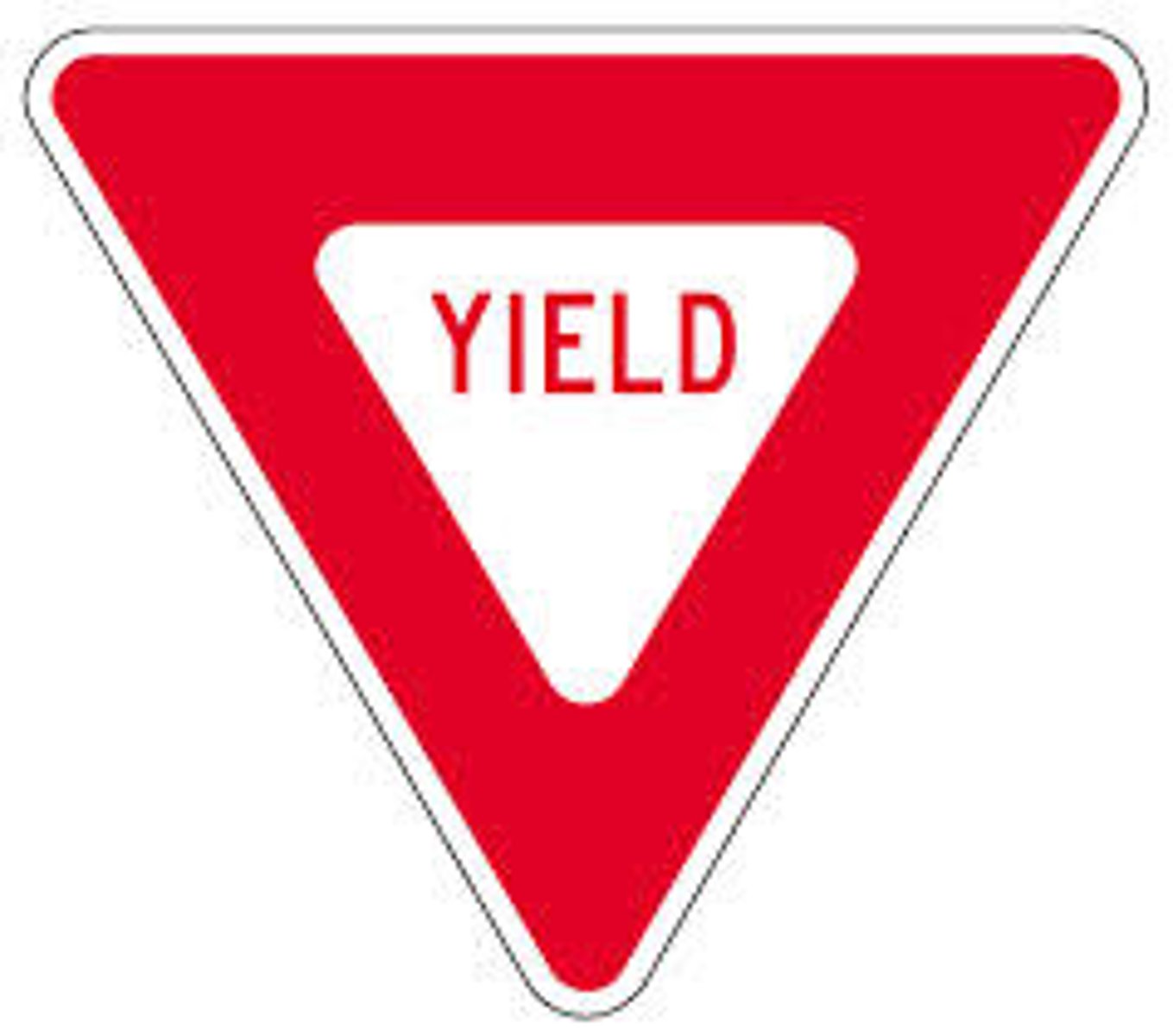
Existing or possible hazards on roadways or adjacent areas.
...
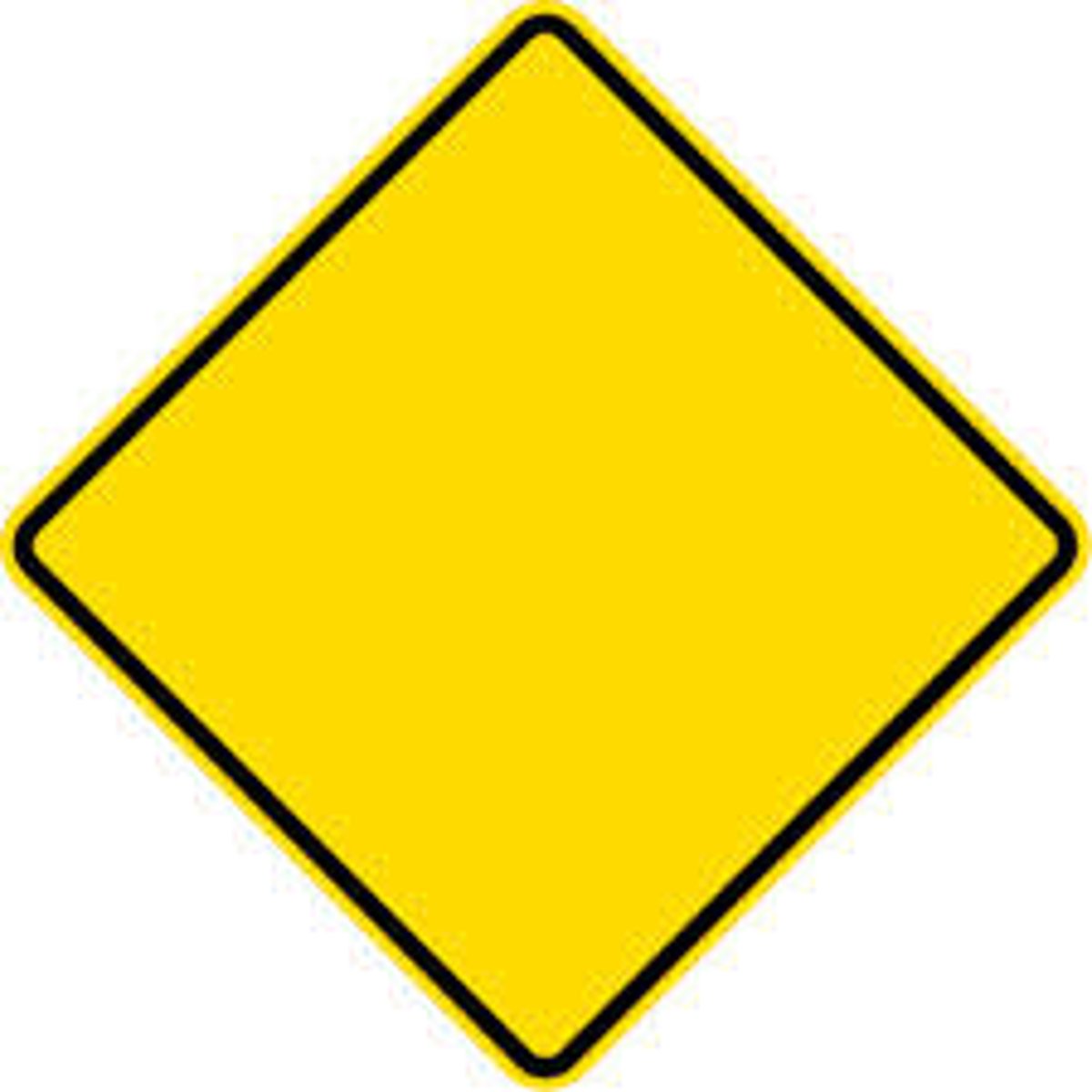
Approaching a school zone and/or school crossing.
...
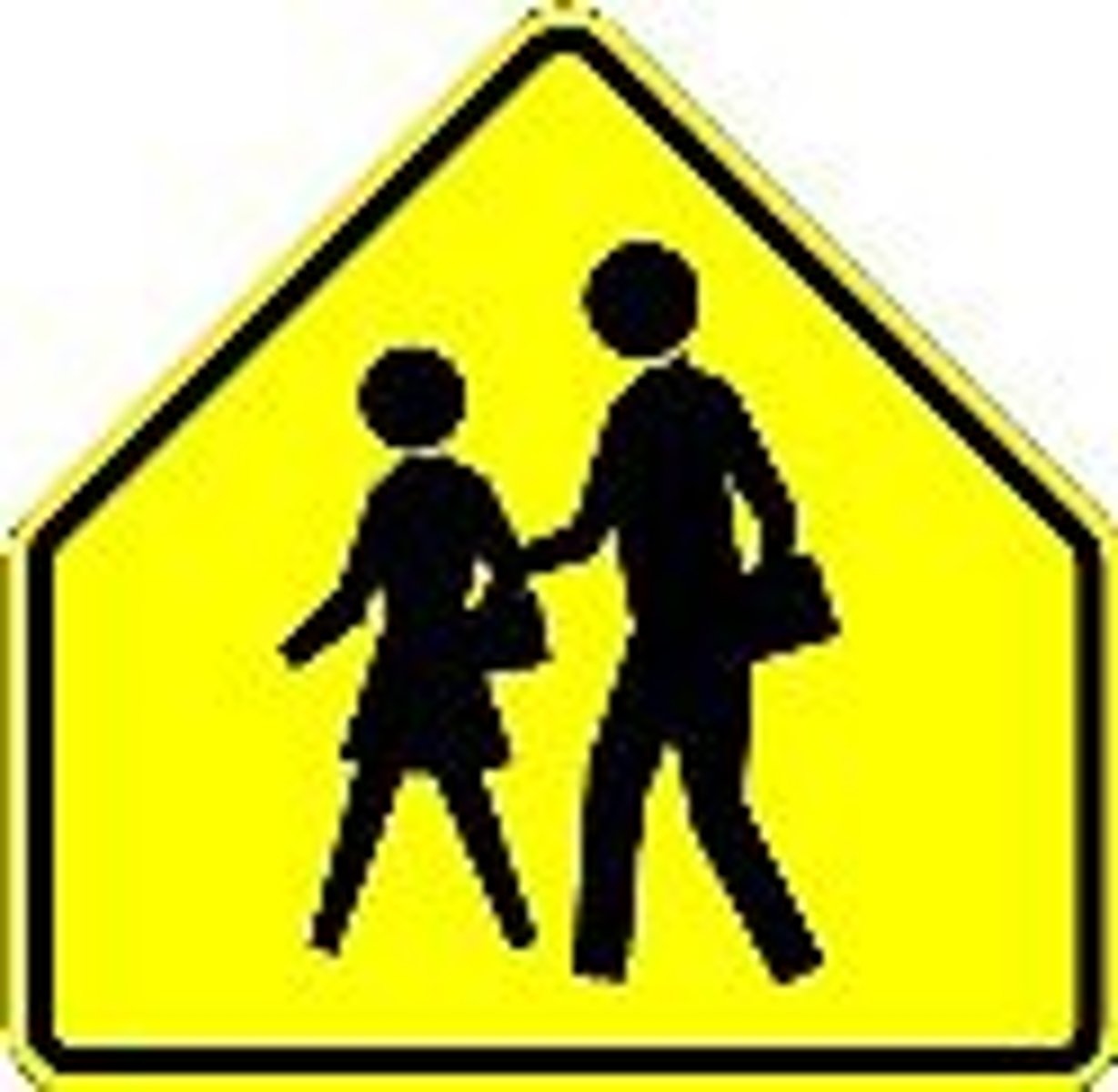
used as guide signs and they show locations, directions, or other special information
...

Work Zone signs
Orange and black signs indicate you are entering an area under repair or construction and need to reduce your speed, change lanes, etc.
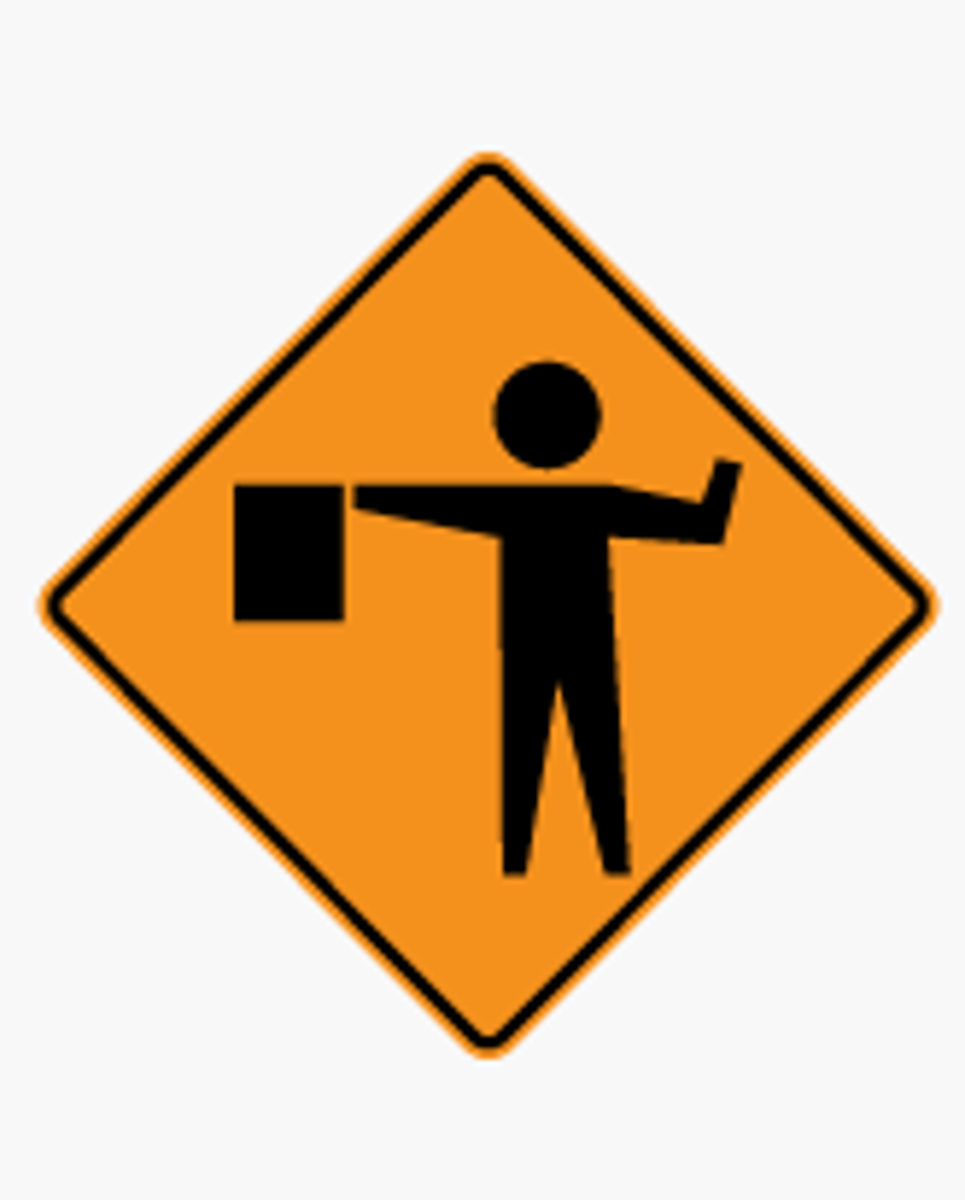
Traffic is required to keep to the right of medians or obstructions
...
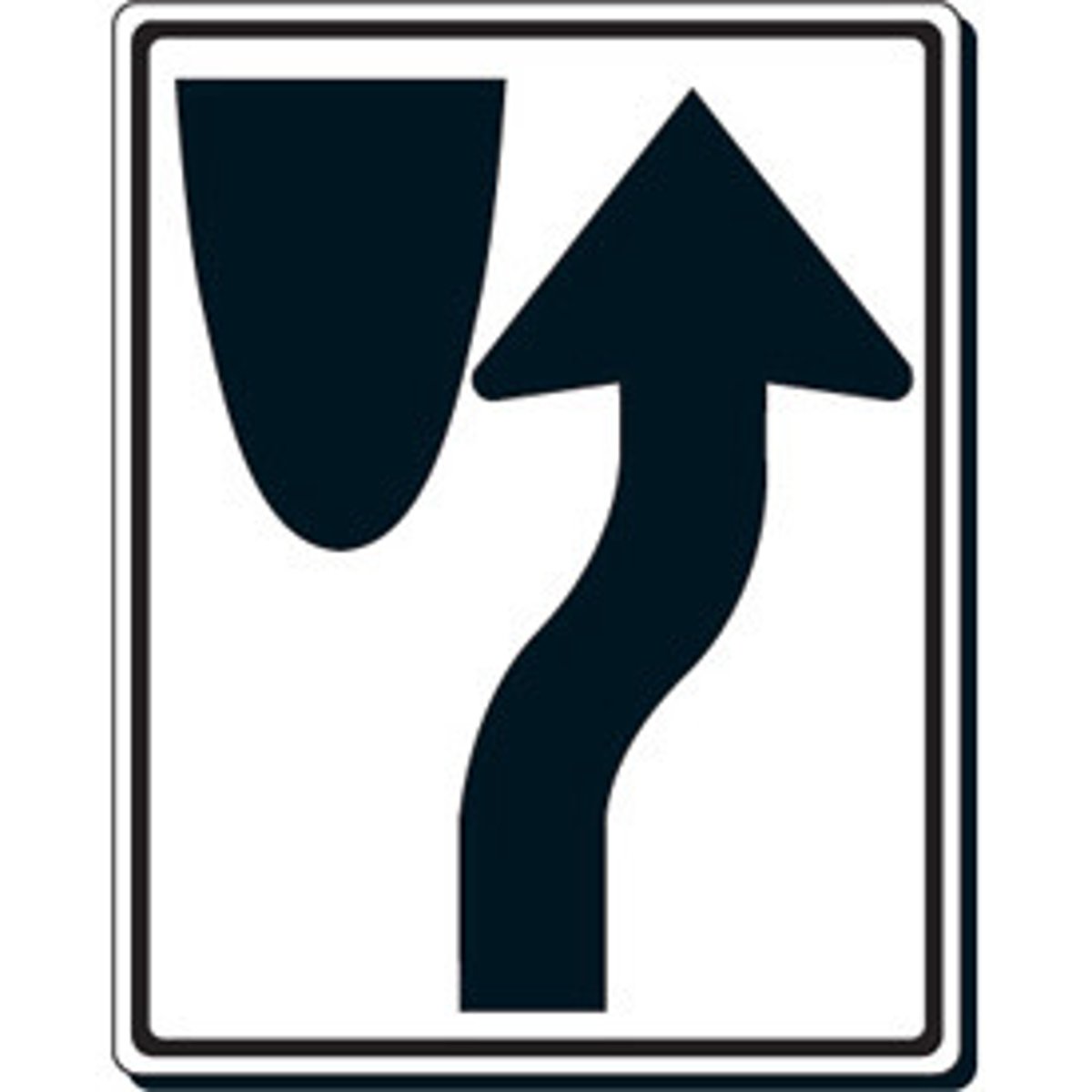
Sharp turn to the right
...
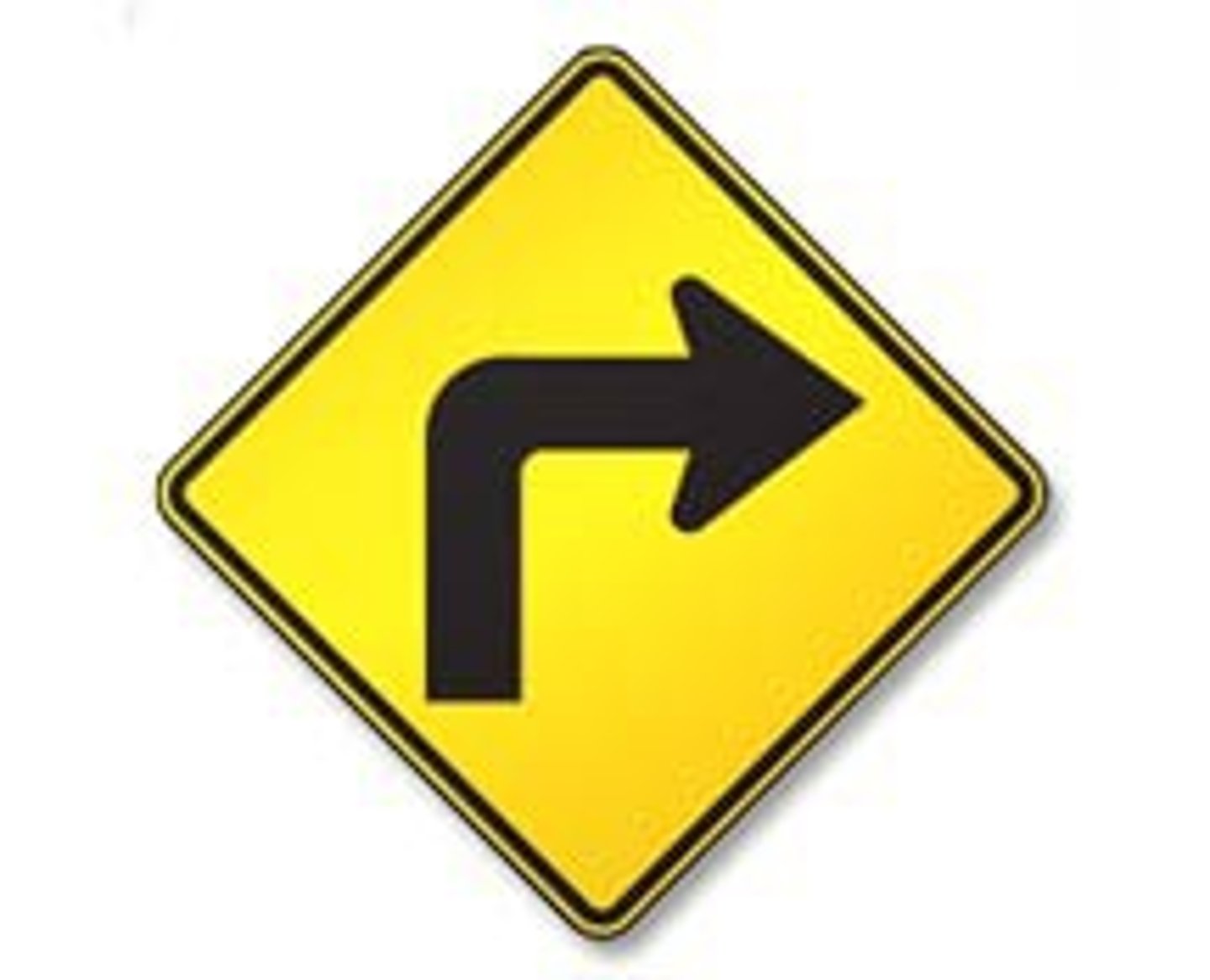
Sharp left curve
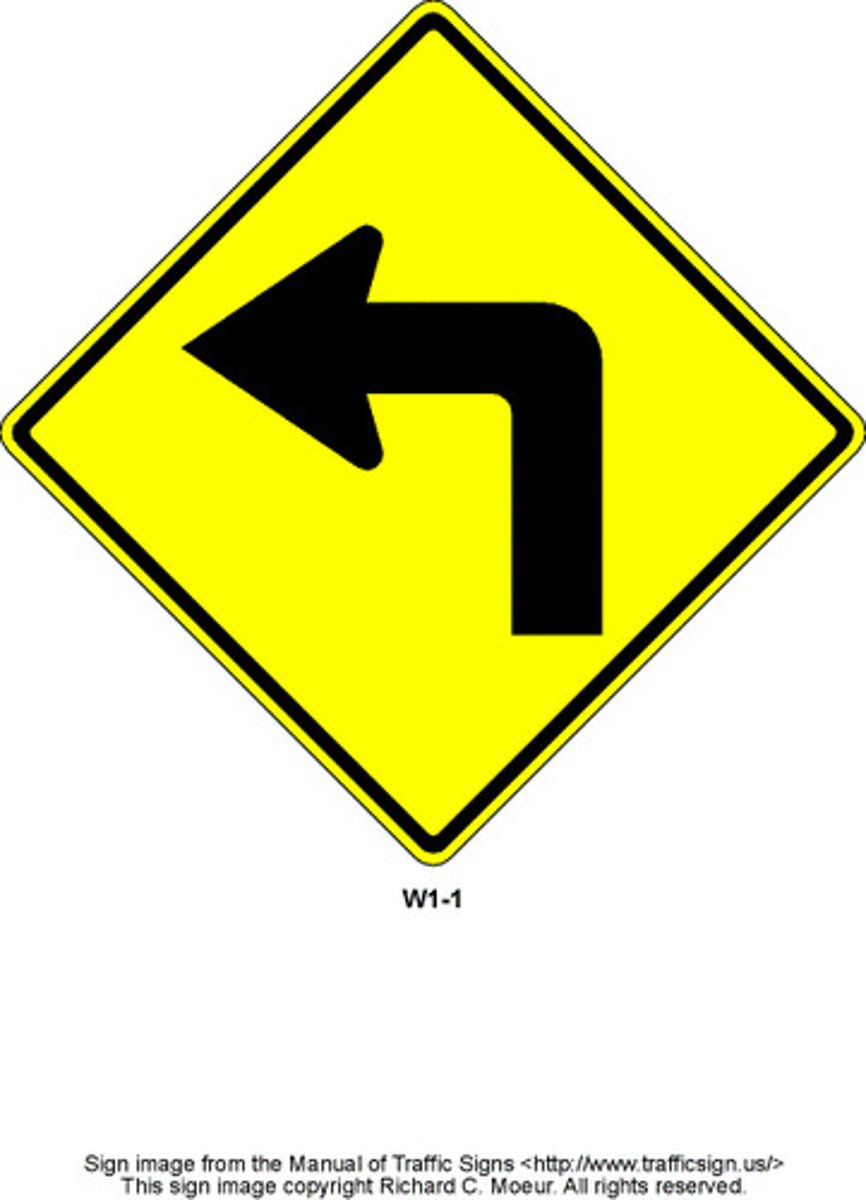
Sharp turn to the right and then to left
...
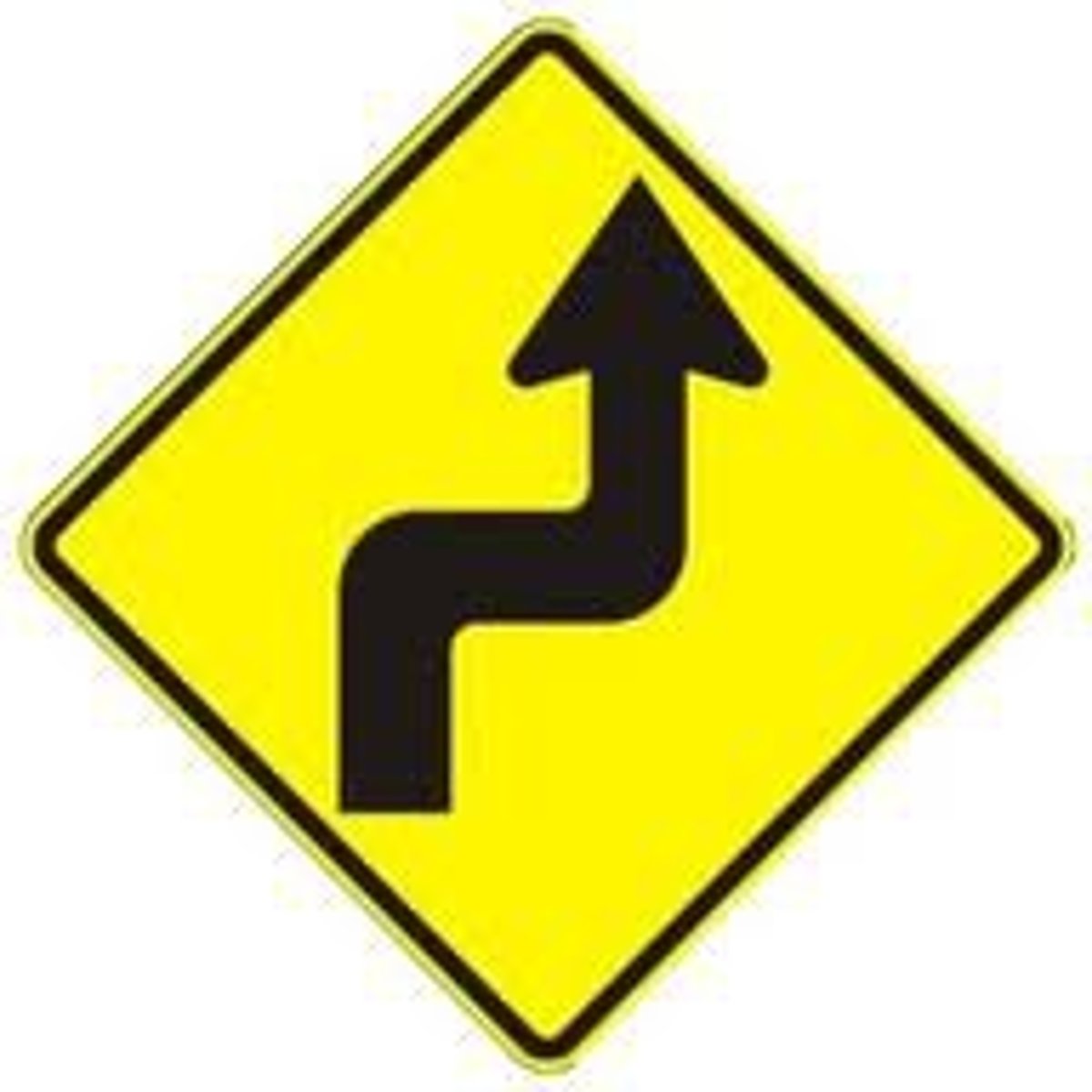
Winding road ahead
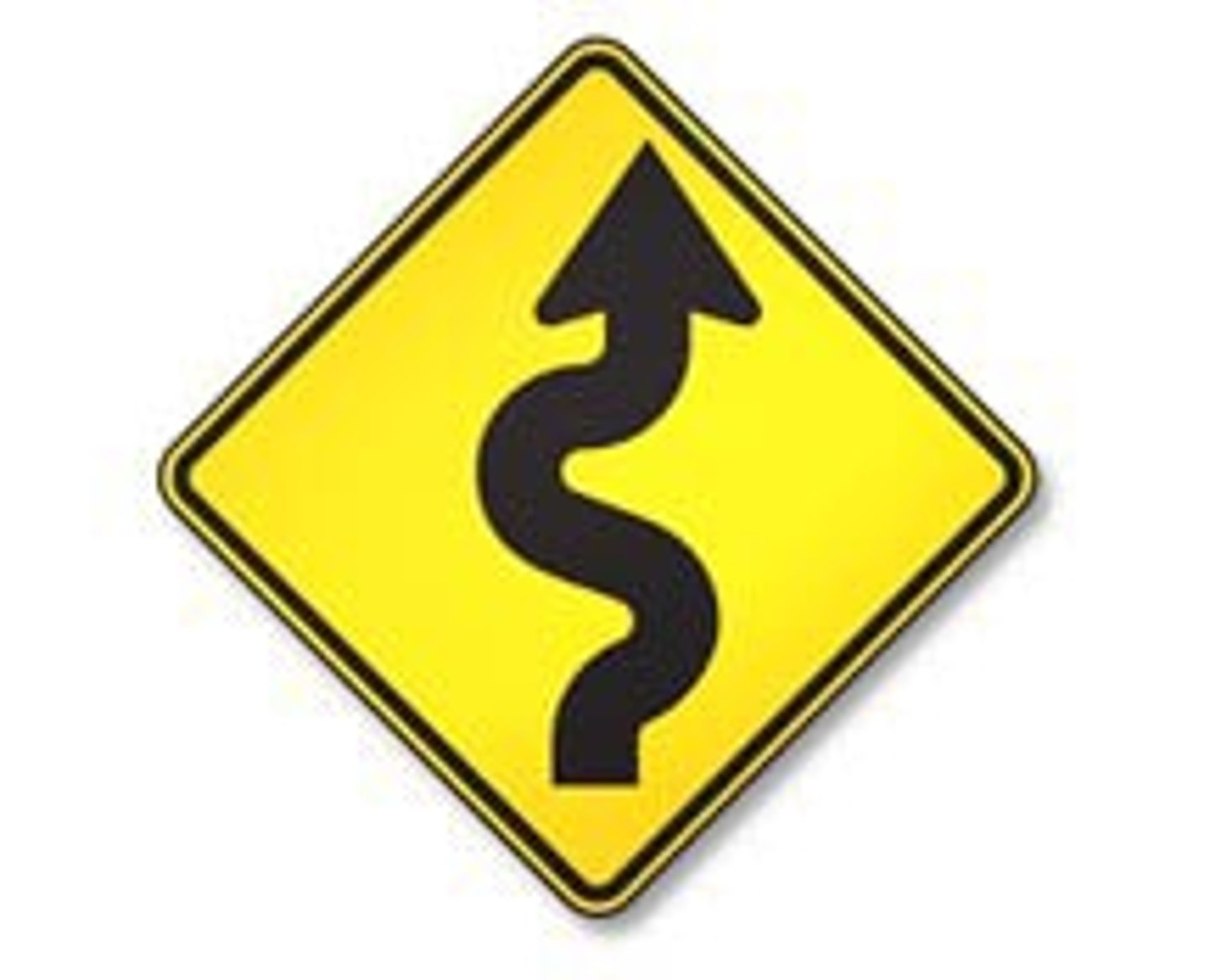
Side road enters highways ahead
...
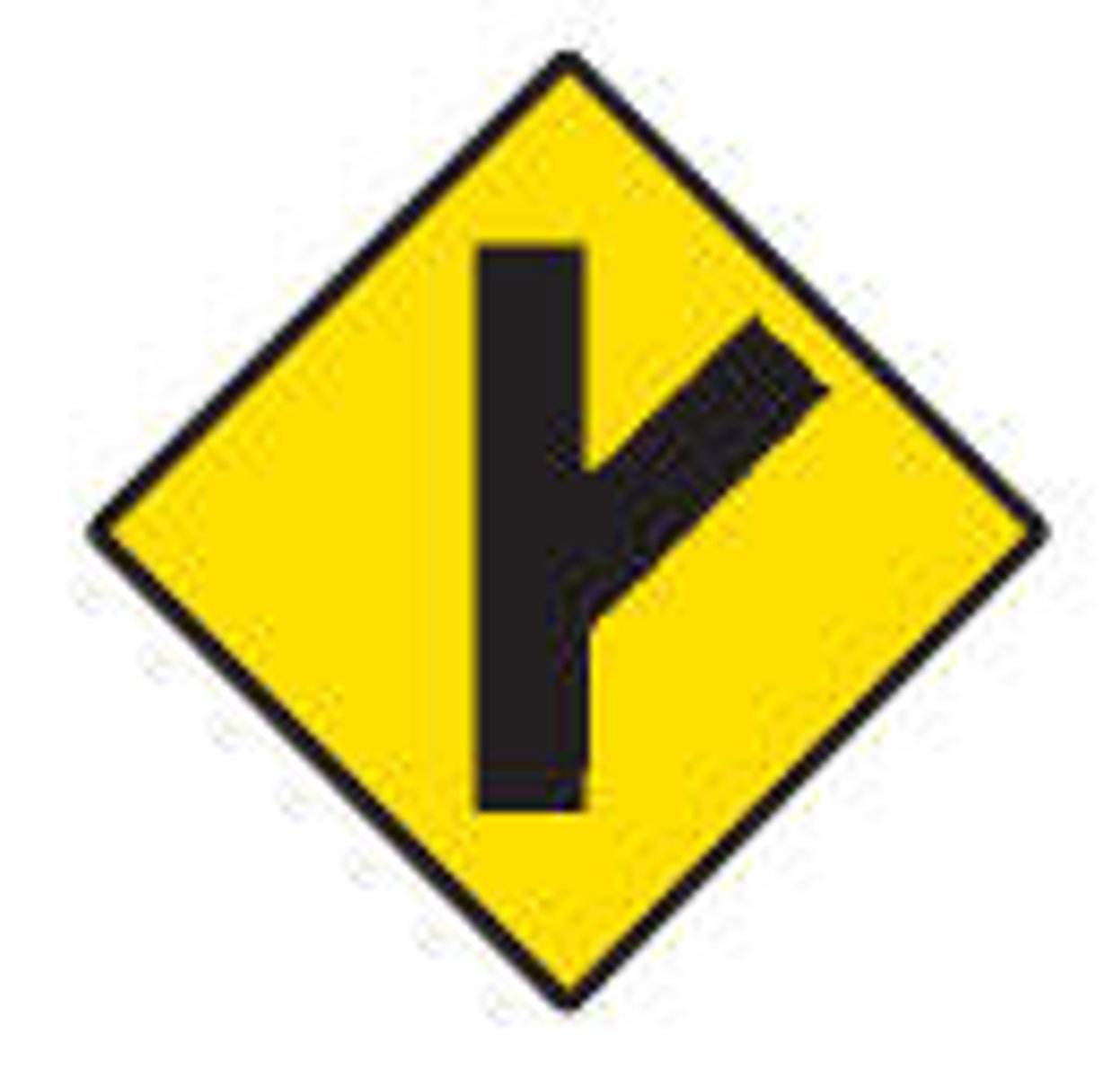
Dip in the road! SLOW DOWN
...

Bump in road! Slow Down
...
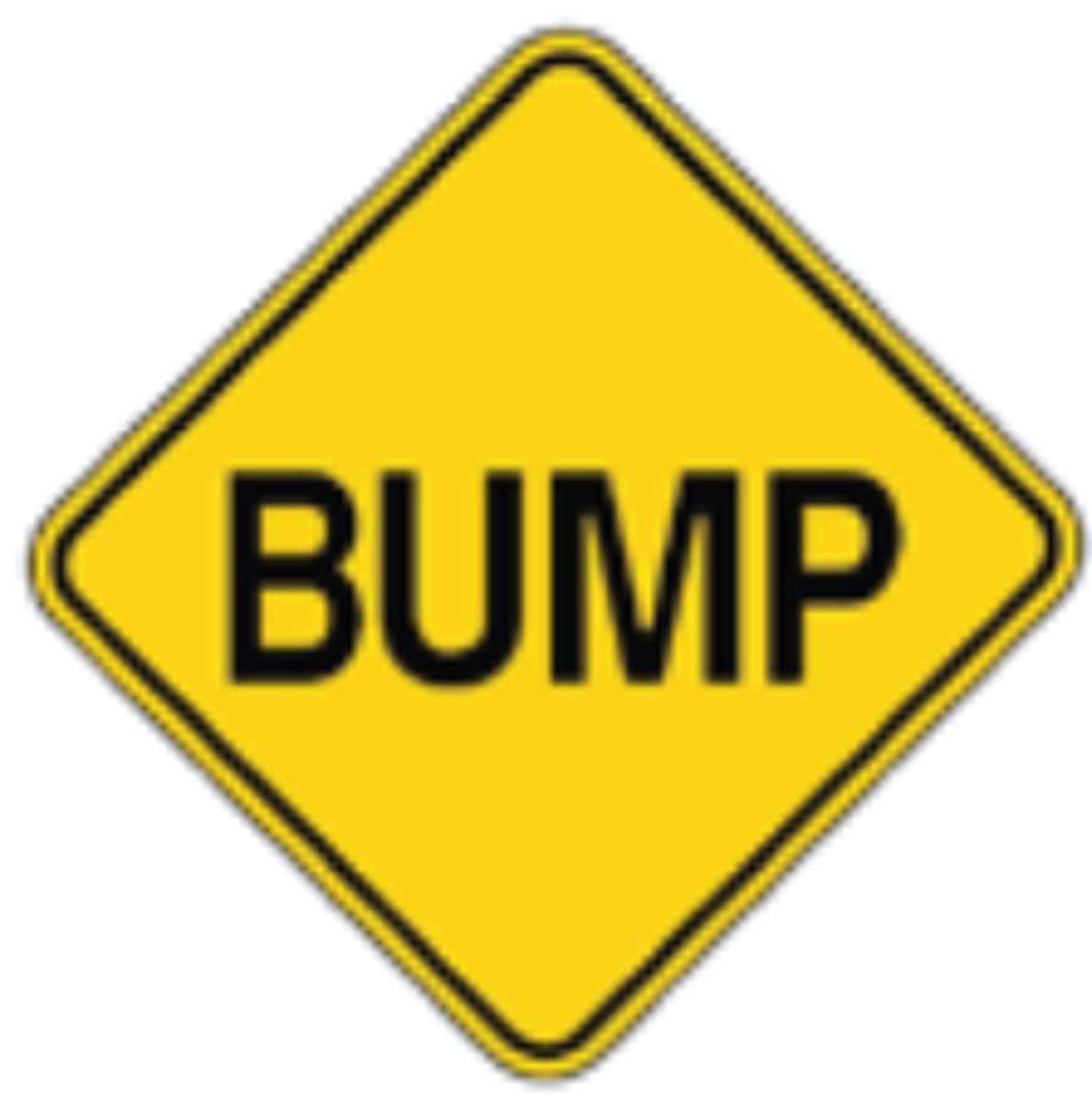
Shoulder of the road is soft. Drive on the shoulder only in emergencies.
...
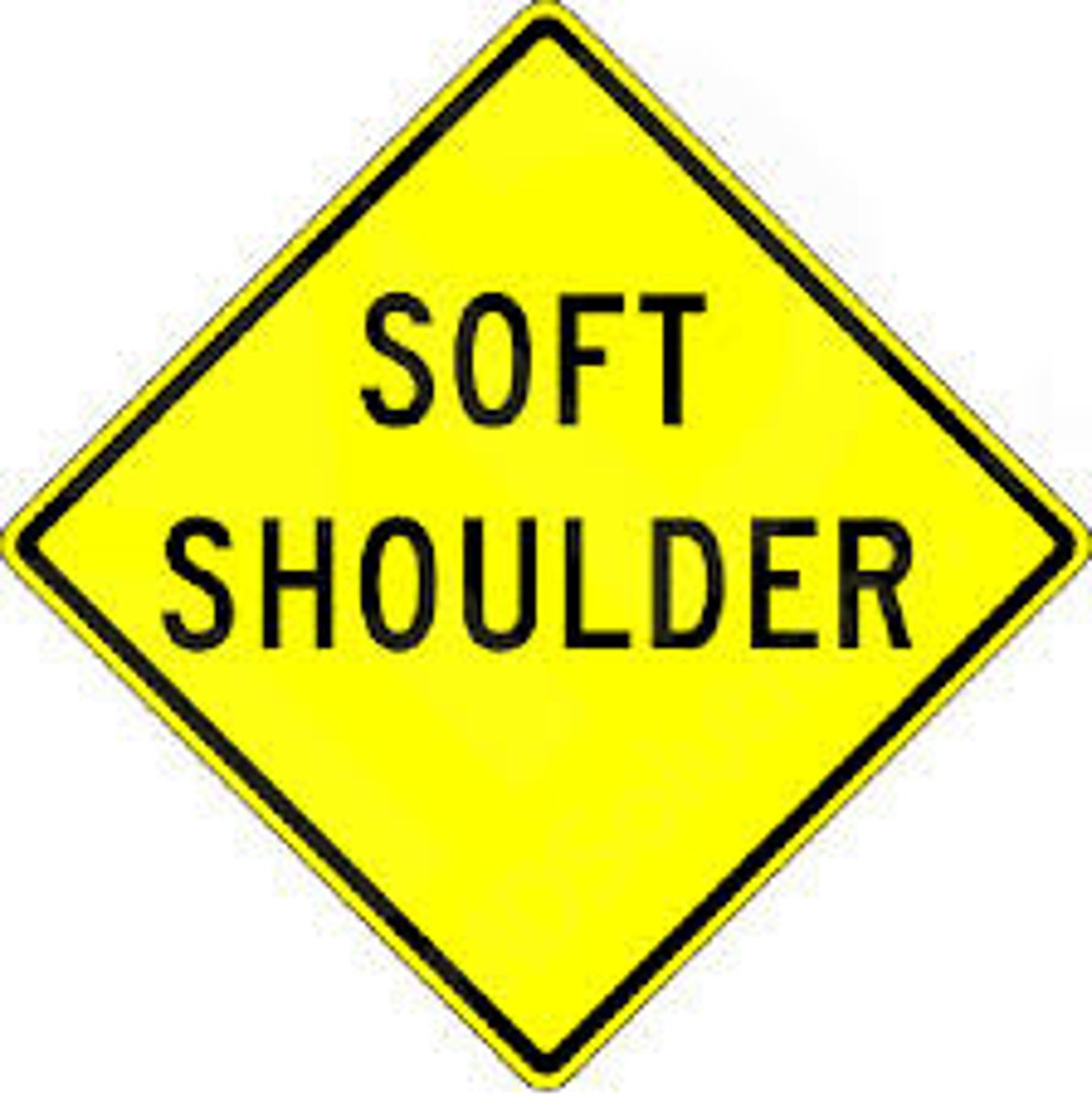
Divided highway begins. Prepare to change lanes or shift lane positions
...
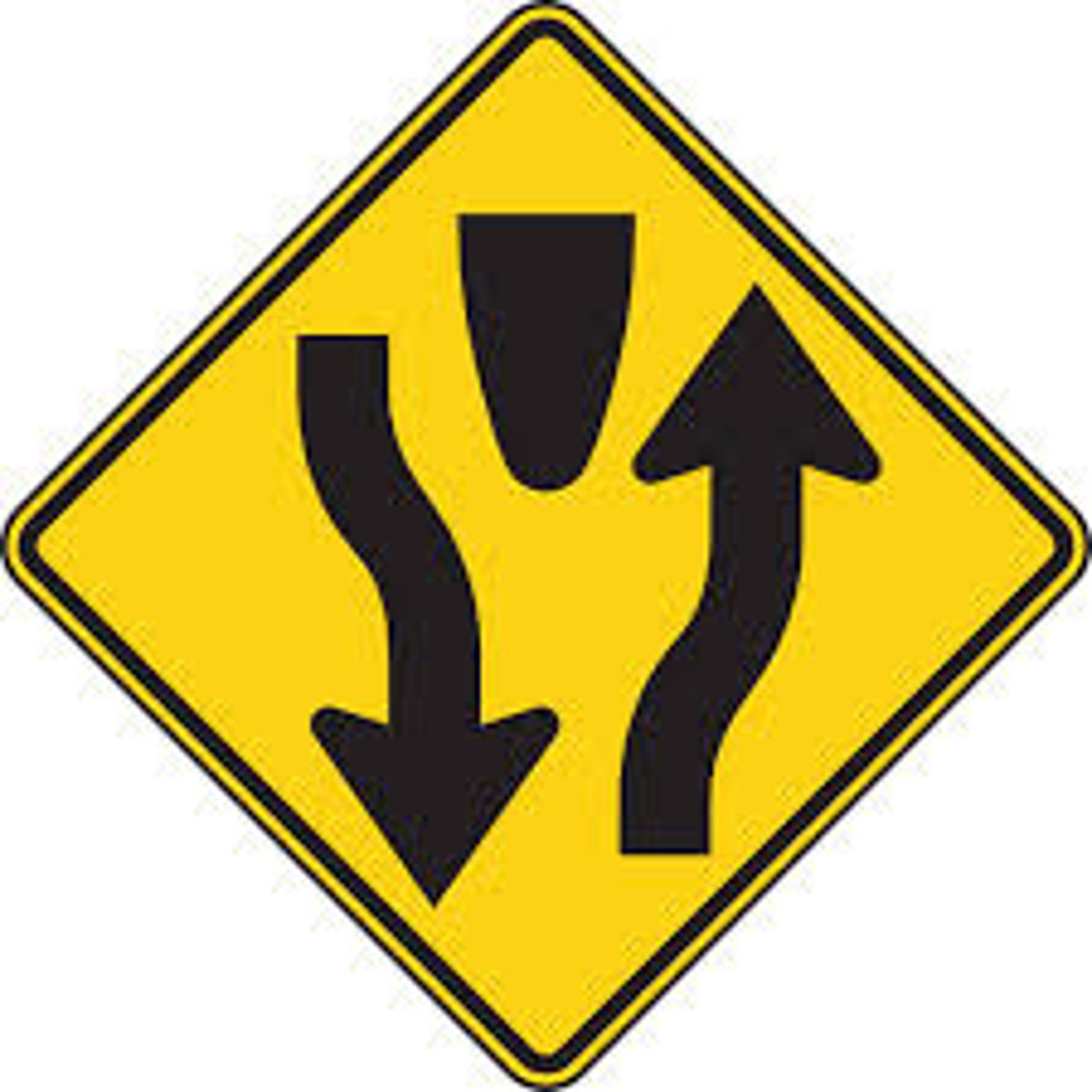
Divided highway ends. Prepare to change lanes or shift lane positions.
...
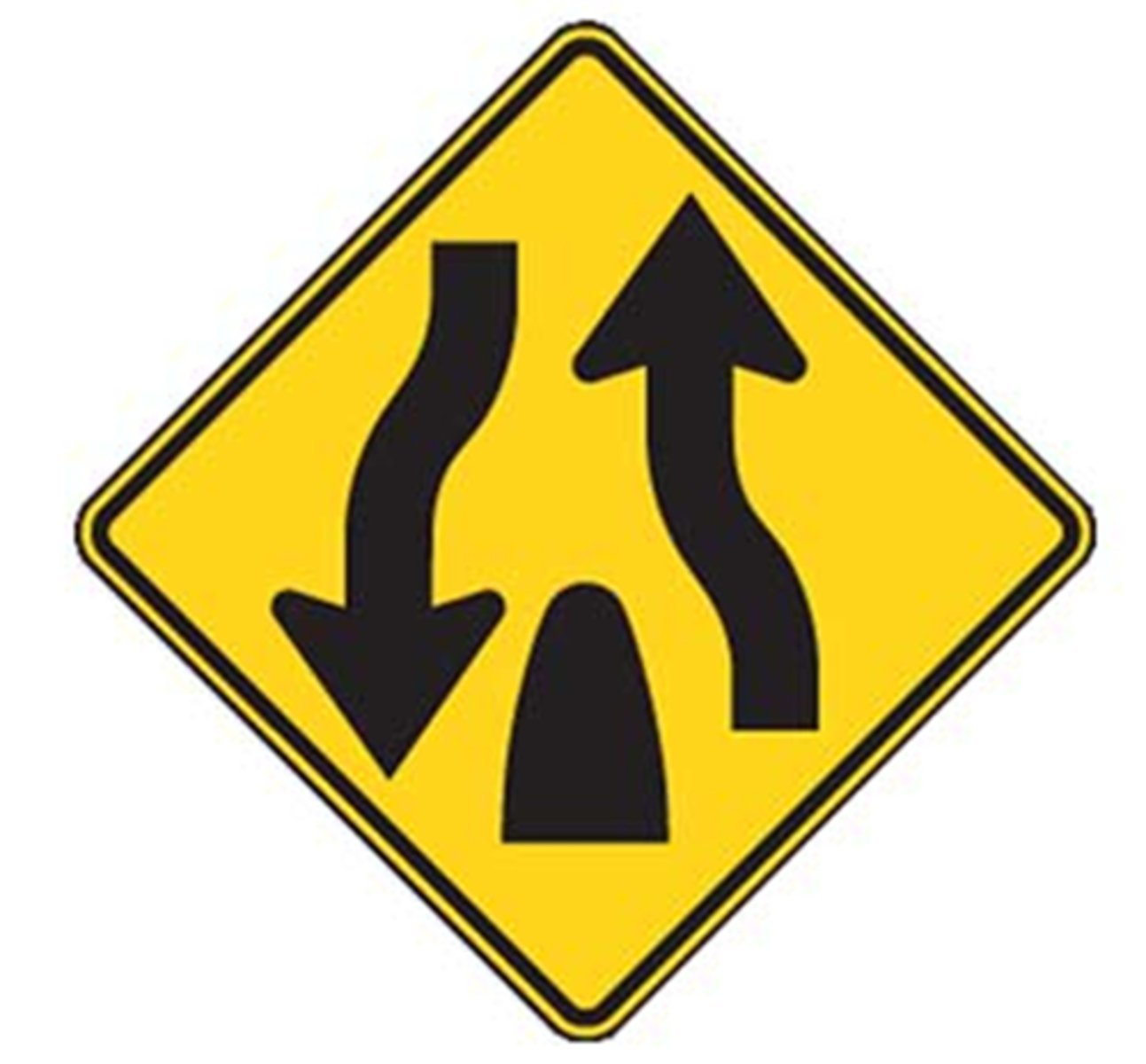
You are leaving a separated one-way highway and will soon be driving on a two-way highway.
...
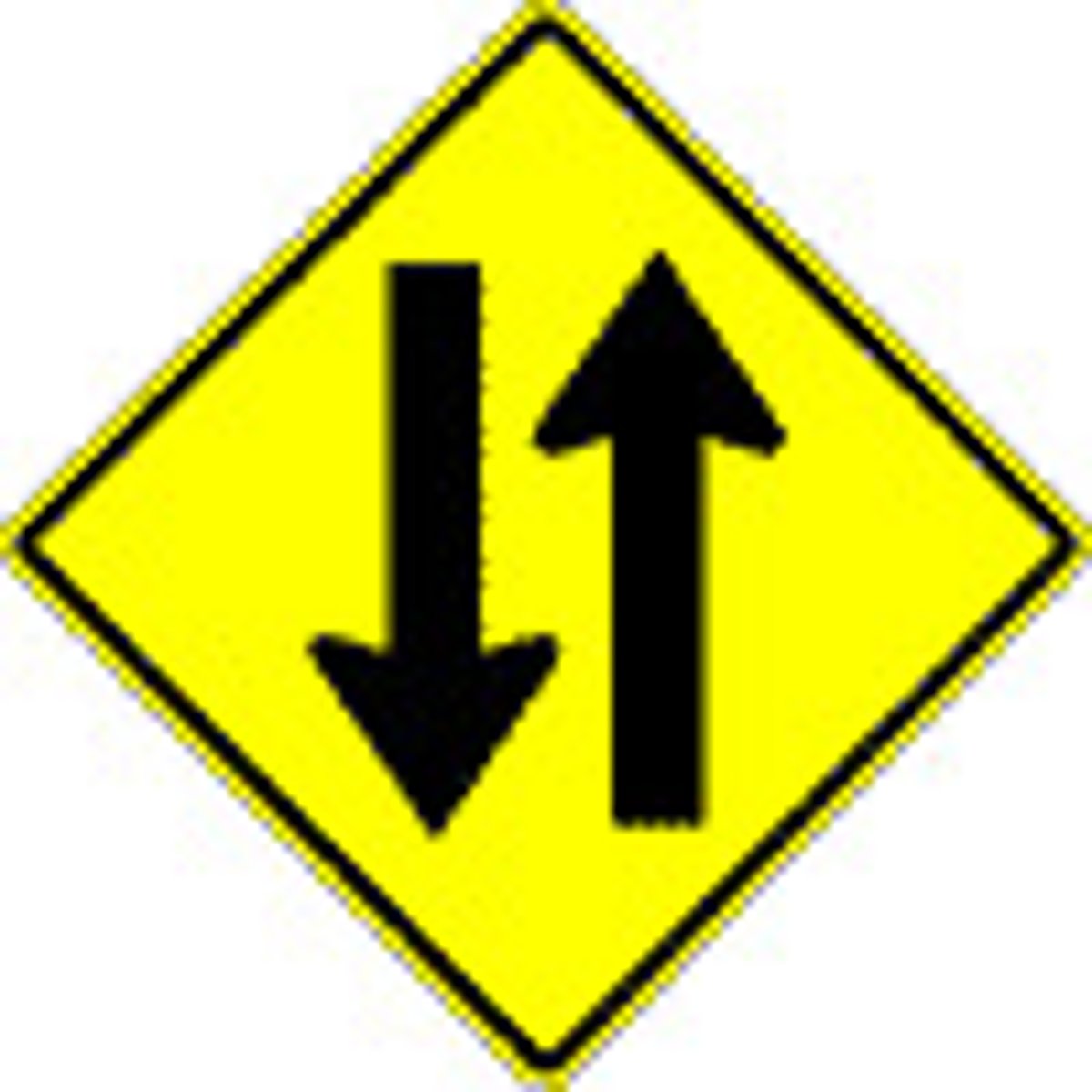
Number of lanes reduced ahead
...
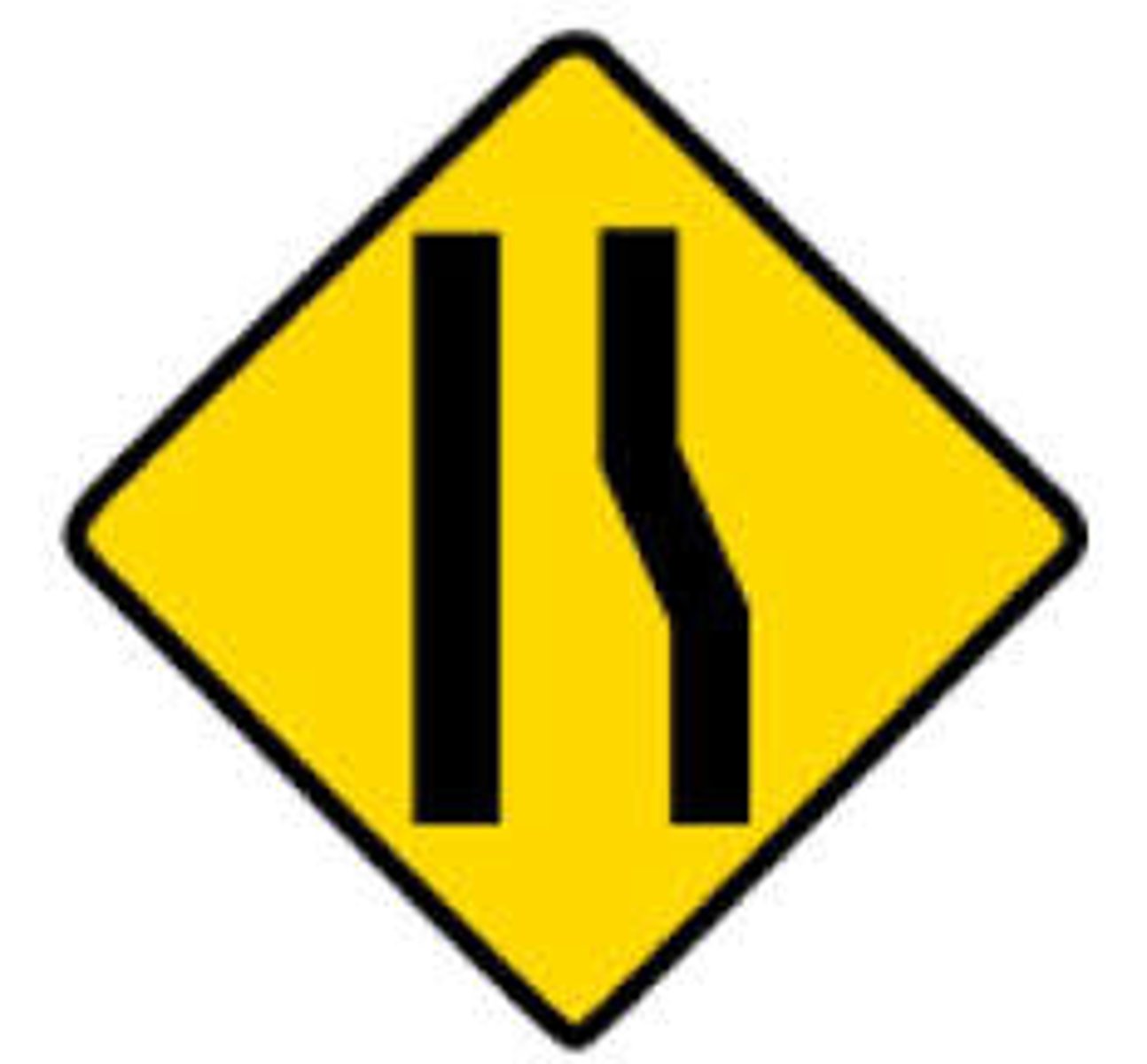
Roadway slippery when wet.
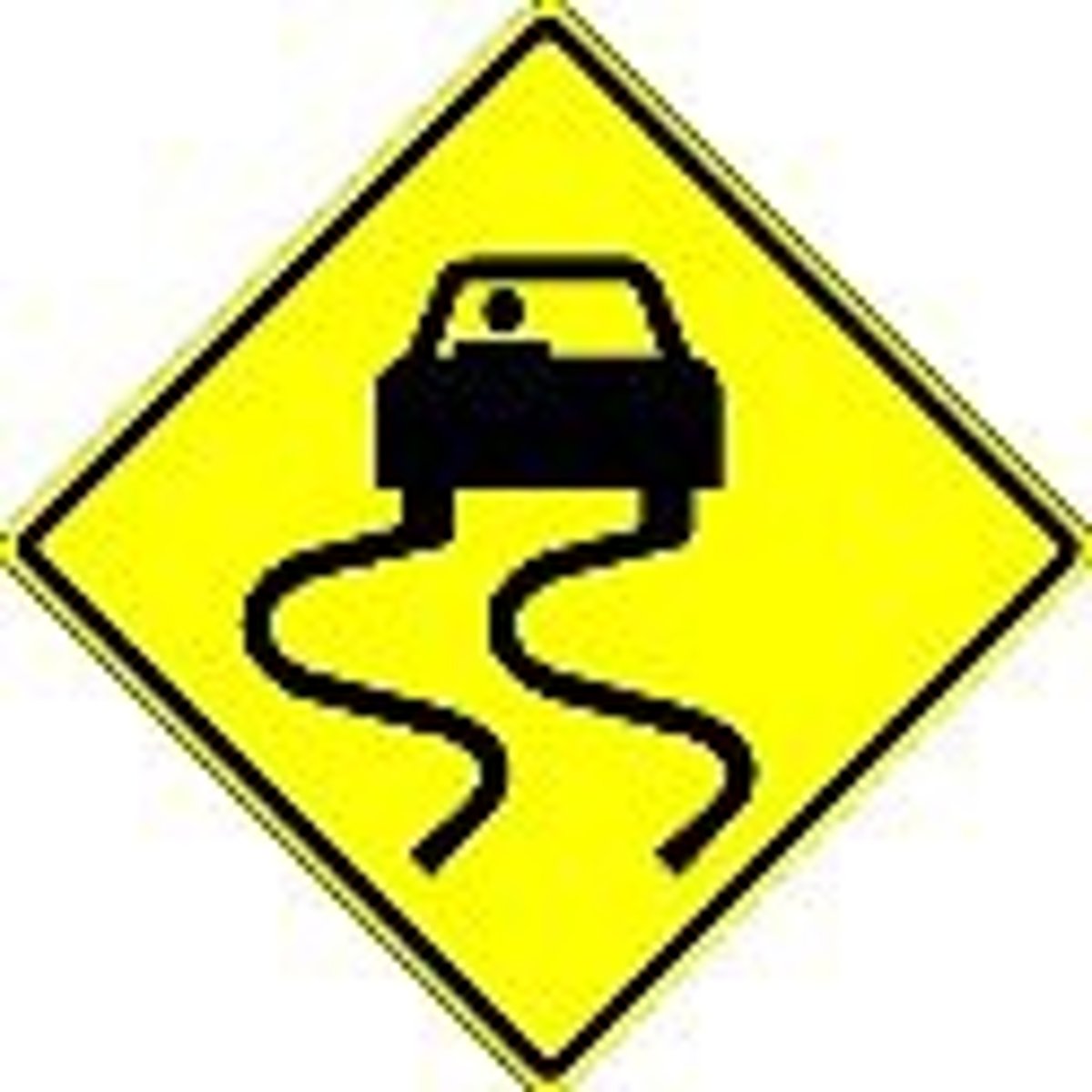
Yield -
must slow down to a speed that is reasonable for existing conditions
and stop if necessary.
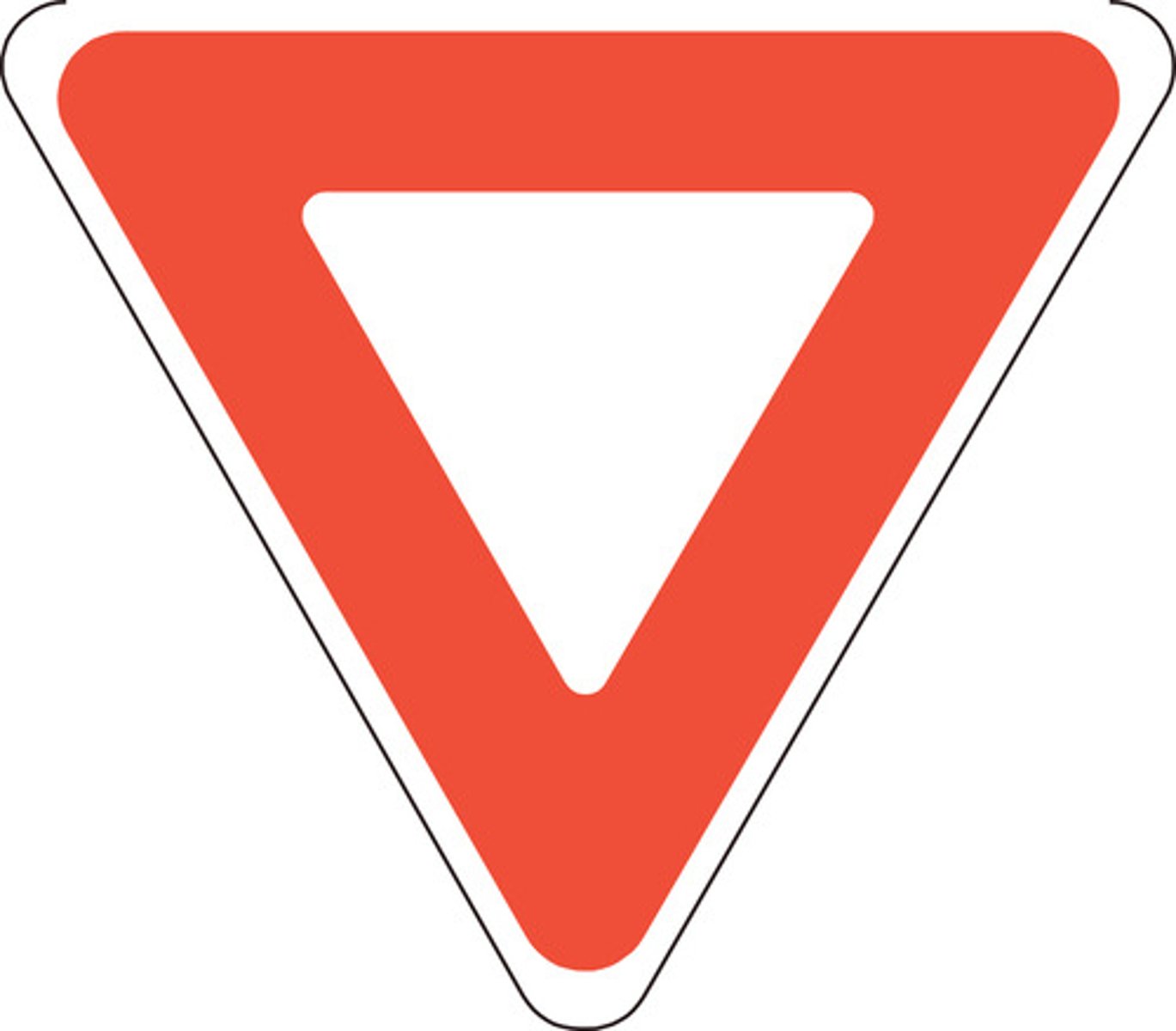
If you start to skid.
Ease your footoff of the accelerator
Begin turning the steering wheel in the direction of the skid.
Once you have regained control of the vehicle, you can lightly apply breaks and steer in a safe direction.
Gore
Means the area of convergence between two lanes of traffic.
Pedestrians
At a four-way intersection where all drivers
are faced with stop signs, all drivers must yield to
"first to arrive, first to proceed order."
At a four-way intersection where all drivers
are faced with stop signs, all drivers
should proceed through the intersection in
A passing zone
indicated by striped lines to the right
of the center line of the roadway.
You can see the car you have just passed in your rear view mirror
When can you safely return to the right lane after passing a car on the left
Turning left at an intersection
Make your turn so that your vehicle
ends up in the lane closest to the center
lane(s) in your direction of traffic on the street
you turned onto, or closest to the center line
if there is no center lane;
Turning right at an intersection
Make the turn in such a way as to end up in
the right lane of the street into which you
have turned and avoid entering any other
lane of traffic.
Pedestrian at an intersection crosswalk with Walk signal
you must stop and remain stopped for any pedestrians in the crosswalk of the road onto which you wish to turn until they have cleared the lanes of traffic upon which you are traveling.
Slow Poke law
Regardless of the speed you are traveling, you must move from the lane when faster traffic is approaching.
Super Speeder Law
Any driver convicted of speeding 75 mph on any two-lane road, or 85 mph and over anywhere in Georgia, will be assessed a $200 state fee. The state fee will be in addition to any local fines imposed in the jurisdiction where the speeding offense occurs.
Stopping at Railroad crossing
You must always stop within 50 feet, but not
less than 15 feet, from the nearest rail of a railroad
crossing and remain stopped until all tracks are clear, all railroad crossing warning signals stop flashing, the crossing gates are raised, and it is safe
to proceed.
Coasting
The driver of any motor vehicle, when traveling
down a hill, must not coast with the gears or transmission of the vehicle in neutral.
Driving Under the Influence of Alcohol or Drugs
A person under 21 years of age is irrefutably
considered "Under the Influence of Alcohol"
when 0.02 gm or more by alcohol weight is
present in the blood;
Reckless Driving
Disregard of safety of persons or property by speeding, weaving in and out of traffic, improperly
passing, etc. Penalties may include a fine of up to $1000, imprisonment for up to 12 months, and, if the driver is under 21 years of age, conviction will result in a suspension of all driving privileges.
Impaired hearing
It is unlawful to operate a motor vehicle
while wearing a headphone, headset, or any
other device which would impair the driver's
ability to hear.
Overdriving your headlights
Drive at a speed at night that requires a stopping time greater than the distance illuminated by your headlights;
If visibility is greatly reduced, such as during a heavy rain
use the edge line as a guide to maintaining your lane of travel. If there is no edge line, use the center line to guide yourself
45%
Georgia Department of Transportation reports
that the risk of fatality in a crash is reduced
by about ____ % when seat belts are used.
Distracted driving
Any driver under age 18 is prohibited from using any wireless device while driving. This includes
cell phones, computers, and all texting devices. Fine $150 increases to $300 if involved in a crash and 1 point added to your driving record
Aggressive Driving
tailgating, cutting in front of another driver, blocking other drivers from passing or changing lanes, etc. - a misdemeanor of a high and aggravated nature, it results in suspension of all driving privileges
Penalties for driving under the influence of
intoxicants
Fines up to $1000, jail sentences up to 12 months, and mandatory suspension of your driving privileges
Headlights must be used
Between one-half hour after sunset to one-half hour before sunrise; at any time when it is raining; or when visibility is limited
Night driving
Slow down when oncoming traffic is approaching
or when you are nearing a curve;
Tired or drowsy driving
Do not drive if you are tired. More frequent
stops, more fresh air, lively radio programs
and other measures can help you to avoid
drowsiness and inattention;
Seat belts requirements
Georgia law states that each occupant in the
front seat of a passenger vehicle traveling on
Georgia roads and highways must be secured
by a seat safety belt (lap and shoulder). All occupants of any passenger vehicle must utilize
a seat safety belt if they are under the age of 18.
Dim (lower) your headlights when:
• within 500 feet of an approaching vehicle so as not to blind the driver;
• following closely (within 200 feet) behind another vehicle;
• driving on lighted roads;
• driving in rain, fog, snow, or smoke;
• vision is reduced to less than 200 feet
8 years of age
Every child who is under _____ years of age
must be properly restrained in restraining
system appropriate for the child's height
and weight.
Blind spot
Before leaving your lane to begin passing, or change lanes on a multi-lane highway or interstate
check your rear view and side mirrors, and
turn your head to check for other cars not visible in your mirrors
School bus - yellow flashing lights
When the flashing yellow lights are activated on a school bus, all drivers approaching the school bus should slow down and be prepared to stop.